Top Ten Tuesday was created by The Broke and the Bookish and is now hosted by Jana at That Artsy Reader Girl. Check out upcoming Top Ten themes on Jana’s blog!
This week’s prompt is 21st Century Books I Think Will Become Classics (submitted by Lisa of Hopewell). As you can see, I changed it a bit to books that I think should be Classics, rather than will be, because after spending a chunk of my education in the British school system I don’t have a lot of faith in the people who decide which books become Classics.
How do you define a Classic, though? For me, whenever anyone talks about SFF Classics, I reflexively think of the Fantasy Masterworks series – not a series in the usual sense, but a collection of fantasy books that have been dubbed “some of the greatest, most original, and most influential fantasy ever written”.
I’m scrapping ‘most influential’ – though I know that’s a vital part of how most people define a Classic, I don’t think a book’s greatness should be determined by its reach, when so many factors can leave an incredible book flying under the radar – but here, in no particular order, are ten of the greatest, most original SFF books of the 21st century!
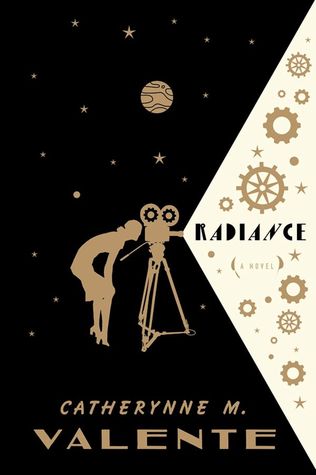
Genres: Queer Protagonists, Science Fantasy
Representation: Bisexual MC
Goodreads
Radiance is a decopunk pulp SF alt-history space opera mystery set in a Hollywood-and solar system-very different from our own, from Catherynne M. Valente, the phenomenal talent behind the New York Times bestselling The Girl Who Circumnavigated Fairyland in a Ship of Her Own Making.
Severin Unck's father is a famous director of Gothic romances in an alternate 1946 in which talking movies are still a daring innovation due to the patent-hoarding Edison family. Rebelling against her father's films of passion, intrigue, and spirits from beyond, Severin starts making documentaries, traveling through space and investigating the levitator cults of Neptune and the lawless saloons of Mars. For this is not our solar system, but one drawn from classic science fiction in which all the planets are inhabited and we travel through space on beautiful rockets. Severin is a realist in a fantastic universe.
But her latest film, which investigates the disappearance of a diving colony on a watery Venus populated by island-sized alien creatures, will be her last. Though her crew limps home to earth and her story is preserved by the colony's last survivor, Severin will never return.
Told using techniques from reality TV, classic film, gossip magazines, and meta-fictional narrative, Radiance is a solar system-spanning story of love, exploration, family, loss, quantum physics, and silent film.
When it comes to originality, Radiance knocks it out of the park. It’s an Art Deco phantasmagora where humanity has colonised the solar system while movies are still in black and white, the story of a filmmaker whose disappearance on Venus sets in motion a cascade of mysterious, delicious events that stretch as far out as Pluto. And I feel that it really needs to be emphasised that in Radiance, the Moon and Mars and all the rest aren’t dusty big rocks, but extravagant fantasy-lands with their own flora and fauna and, once there are enough humans around to make one, their own culture. Radiance is a mystery and a documentary and a fantasy, dissecting the human condition while simultaneously sanctifying and celebrating it – and doing so in dozens and dozens of different formats and styles! It ought to be mandatory reading in English Lit classes.
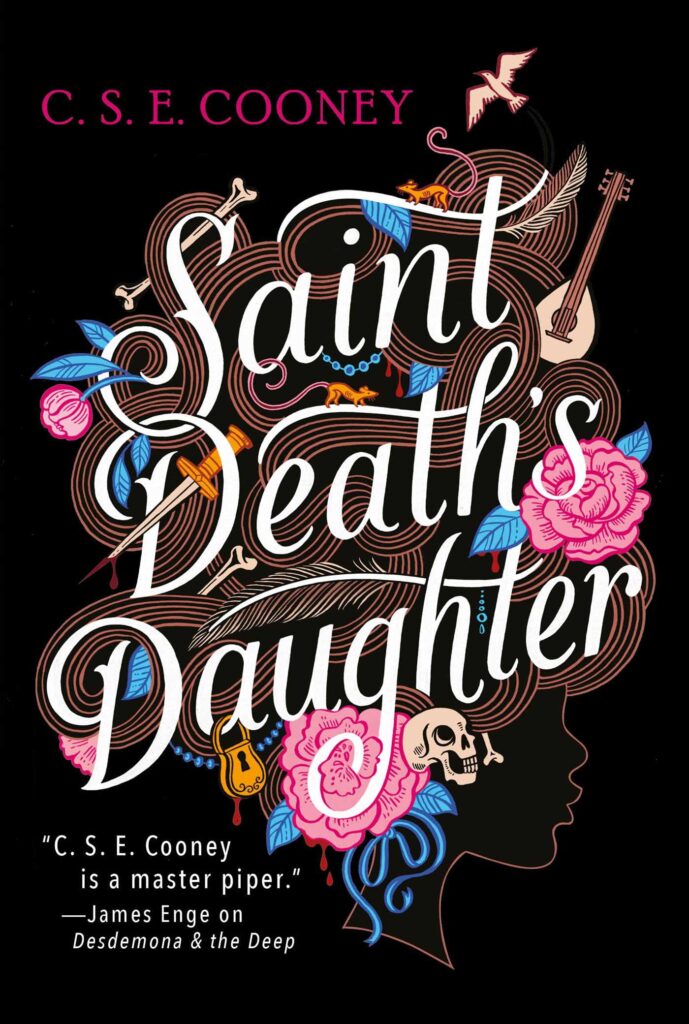
Genres: Fantasy, Queer Protagonists
Representation: Queer MC, nonbinary love interest
Published on: 12th April 2022
Goodreads
Fun, froofy and glorious: a coming-of-age story in a new trilogy from World Fantasy Award-winning author C.S.E. Cooney.
Nothing complicates life like Death.
Lanie Stones, the daughter of the Royal Assassin and Chief Executioner of Liriat, has never led a normal life. Born with a gift for necromancy and a literal allergy to violence, she was raised in isolation in the family’s crumbling mansion by her oldest friend, the ancient revenant Goody Graves.
When her parents are murdered, it falls on Lanie and her cheerfully psychotic sister Nita to settle their extensive debts or lose their ancestral home—and Goody with it. Appeals to Liriat's ruler to protect them fall on indifferent ears… until she, too, is murdered, throwing the nation's future into doubt.
Hunted by Liriat’s enemies, hounded by her family’s creditors and terrorised by the ghost of her great-grandfather, Lanie will need more than luck to get through the next few months—but when the goddess of Death is on your side, anything is possible.
The TL;DR version is that Cooney takes a bunch of concepts we’ve heard of before – necromancy, assassins, ghosts, shapeshifters – and remakes them in her own image; and then she goes ahead and invents so much that we’ve never heard of before, that existed nowhere but her imagination until she wrote them down. But Saint Death’s Daughter isn’t great just because of its tropes and ideas, but in how it uses – plays with – language, which is something I don’t think nearly enough books do, and which Cooney does here peerlessly.
And for the long version, you can read my review.
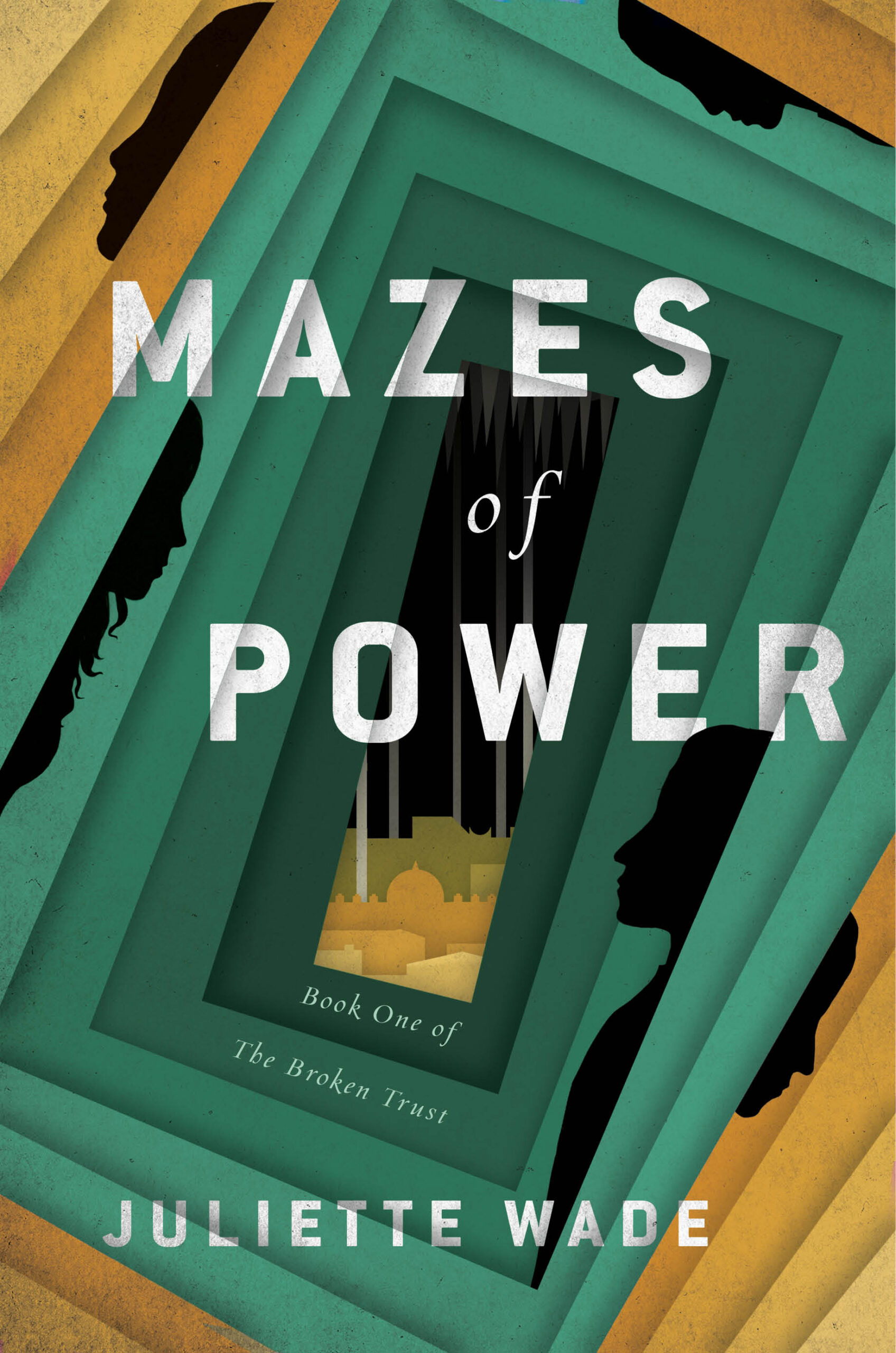

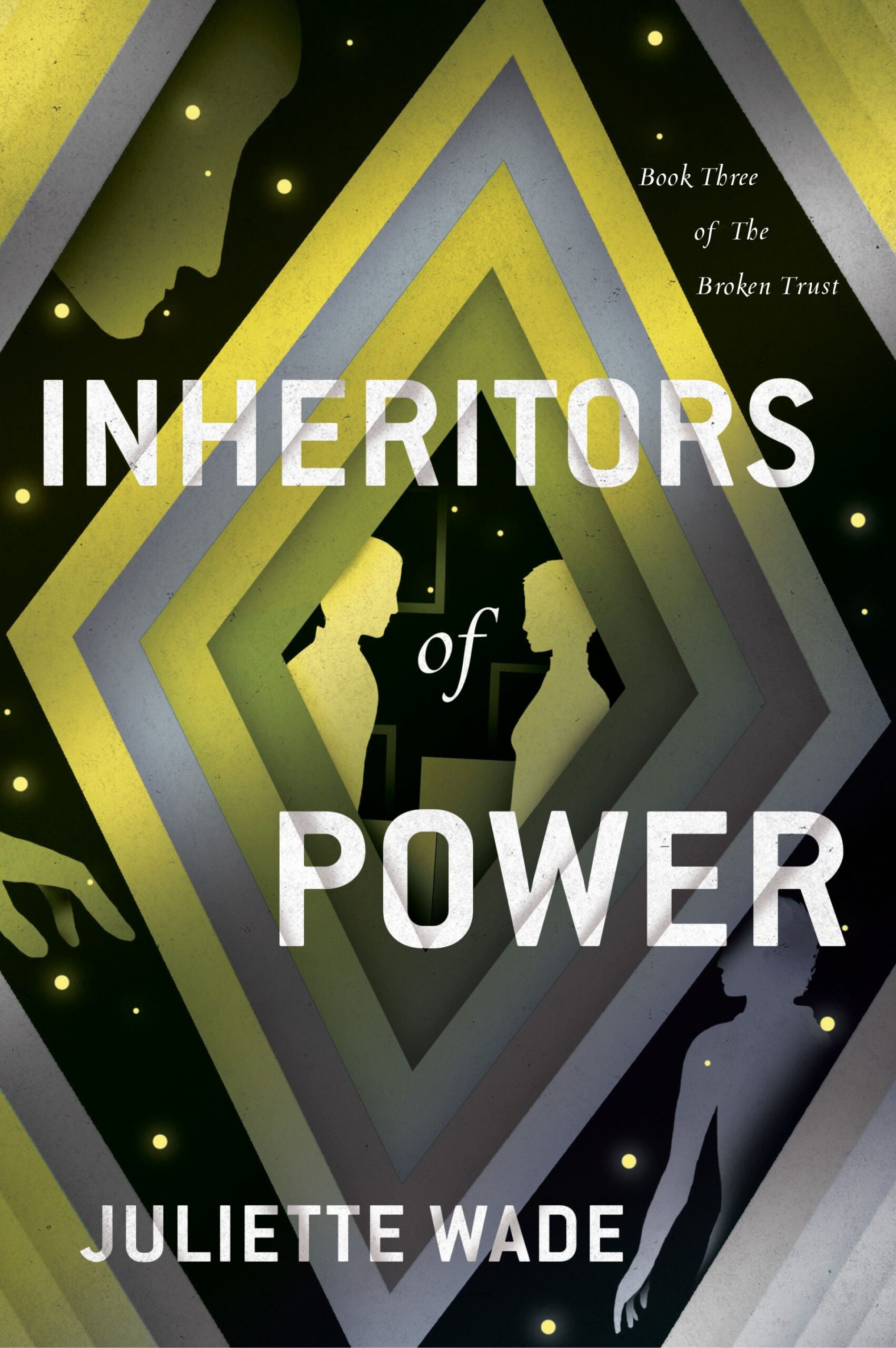
Genres: Queer Protagonists, Sci Fi
Representation: Gay with OCD, bisexual, asexual, secondary trans character
Goodreads
This debut work of sociological science fiction follows a deadly battle for succession, where brother is pitted against brother in a singular chance to win power and influence for their family.
The cavern city of Pelismara has stood for a thousand years. The Great Families of the nobility cling to the myths of their golden age while the city's technology wanes.
When a fever strikes, and the Eminence dies, seventeen-year-old Tagaret is pushed to represent his Family in the competition for Heir to the Throne. To win would give him the power to rescue his mother from his abusive father, and marry the girl he loves.
But the struggle for power distorts everything in this highly stratified society, and the fever is still loose among the inbred, susceptible nobles. Tagaret's sociopathic younger brother, Nekantor, is obsessed with their family's success. Nekantor is willing to exploit Tagaret, his mother, and her new servant Aloran to defeat their opponents.
Can he be stopped? Should he be stopped? And will they recognize themselves after the struggle has changed them?
I would love to storm back into baby!Sia’s old English Lit class and slam these down on the table! There’s just so much to unpack here – caste, responsibility, the nature of power, how a kyriarchy works, and plenty of queer, feminist, and nuerodiverse themes. Wade’s worldbuilding is so beyond perfect that it allows for the examination of things that, in our world, come with tons of baggage and context that make conversations about them difficult – but placing them in Varin allows us to talk about them.
And that’s all aside from the fact that they’re objectively incredible books, with worldbuilding so detailed and alien that it makes even familiar plotlines – like political scheming for what’s effectively the King’s seat – become strange and unique.
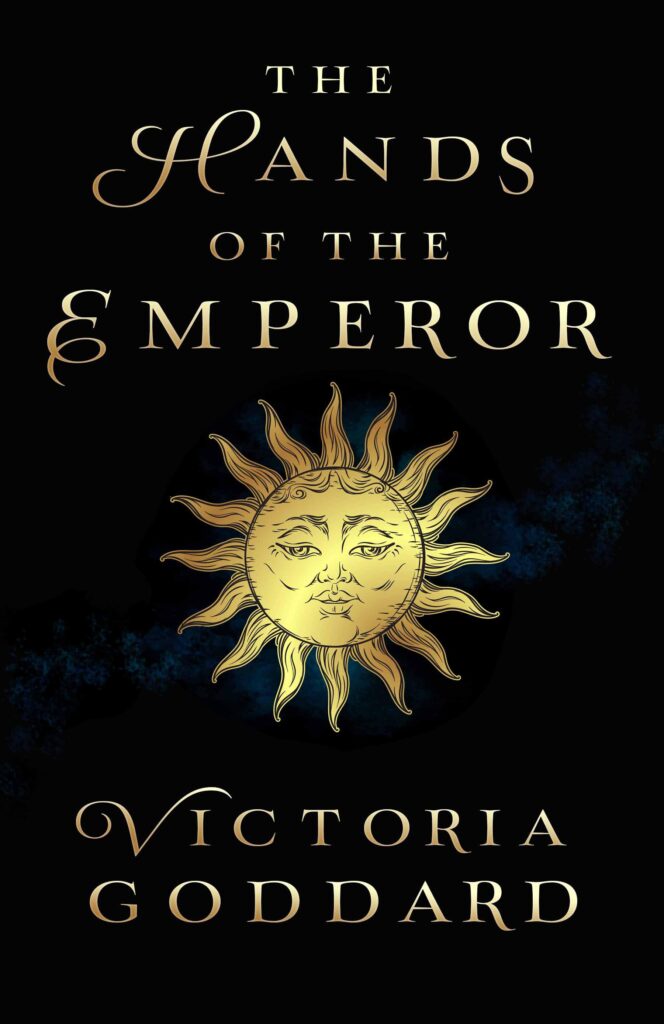
Representation: Polynesian-coded MC, cast of colour
Goodreads
An impulsive word can start a war.
A timely word can stop one.
A simple act of friendship can change the course of history.Cliopher Mdang is the personal secretary of the Last Emperor of Astandalas, the Lord of Rising Stars, the Lord Magus of Zunidh, the Sun-on-Earth, the god. He has spent more time with the Emperor of Astandalas than any other person.
He has never once touched his lord.
He has never called him by name.
He has never initiated a conversation.One day Cliopher invites the Sun-on-Earth home to the proverbially remote Vangavaye-ve for a holiday.
The mere invitation could have seen Cliopher executed for blasphemy.
The acceptance upends the world.
The Hands of the Emperor redefines Epic Fantasy, not making it smaller but making it more intimate, more believable, more approachable, and much more human. It’s a book about saving the world – making the world better – but not with swords or magic or grand final stands against darkness. Because saving the world doesn’t look like that, not really; and because those kinds of heroes make the rest of us think we can’t be heroes.
The Hands of the Emperor says we can be, actually. That we are, and if it’s in smaller, quieter ways than cinematic battles against a Dark Lord, that doesn’t make it mean less; it doesn’t make us mean less. Because there is no Dark Lord, there is no one great evil that can be slain; what there is is work, a lot of it, mundane, behind-the-scenes work that is unlikely to bring you accolades.
You’re not a Chosen One. That doesn’t mean you can’t choose to save the world anyway.
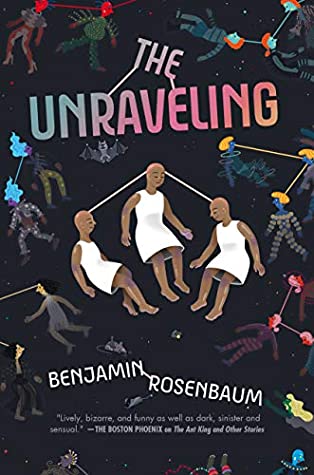
Genres: Sci Fi
Representation: Neo-genders, group marriage/polyamory
Goodreads
In the distant future somewhere in the galaxy, a society has emerged where everyone has multiple bodies, cybernetics has abolished privacy, and individual and family success within the rigid social system is reliant upon instantaneous social approbation.
Young Fift is an only child of the staid gender, struggling to maintain their position in the system while developing an intriguing friendship with the poorly-publicized bioengineer Shria–somewhat controversial, since Shria is bail-gendered.
In time, Fift and Shria unintentionally wind up at the center of a scandalous art spectacle which turns into the early stages of a multi-layered revolution against their strict societal system. Suddenly they become celebrities and involuntary standard-bearers for the upheaval.
Fift is torn between the survival of Shria and the success of their family cohort; staying true to their feelings and caving under societal pressure. Whatever Fift decides will make a disproportionately huge impact on the future of the world. What’s a young staid to do when the whole world is watching?
There is so much to unpack from The Unraveling – gender and gender roles, social media and privacy, family structures and societal oversight… And I could go on. Even if you disagree with Rosenbaum’s takes, there’s no way you won’t be left with a lot to think about after turning the final page. And as for original? Dear gods, this is takes original to a whole new level. People having multiple bodies! Bodies that are easily customised with anything you want! A post-scarcity society, group marriages, an entirely new gender system, I COULD GO ON. And do, in my review, if you want to read more about it. But there’s no question that The Unraveling more than deserves to be a Classic.

Genres: Fantasy, Queer Protagonists
Representation: Gay Indigenous-coded MC, gay MC, M/M
Goodreads
Imprisoned for 'inflammatory writings' by the totalitarian Theocracy, shy intellectual Ashleigh Trine figures his story's over. But when he meets Kieran Trevarde, a hard-hearted gunslinger with a dark magic lurking in his blood, Ash finds that necessity makes strange heroes... and love can change the world.
The God Eaters already is a cult classic – those who know about it, who’ve read it, are so passionate that one reader recognised when one of its scenes had been plagiarised in a fanfic. How many books do you know so well you’d recognise lines of it somewhere else, out of context?
And The God Eaters absolutely deserves that level of passion; beyond beautiful prose and a beautiful love story, the magic and mythology are mindblowingly original, while the story itself wrestles with topics as wide-ranging as the power and place of violence, the need (or lack thereof) for redemption, and how badly wrong things go when church and state are one entity.
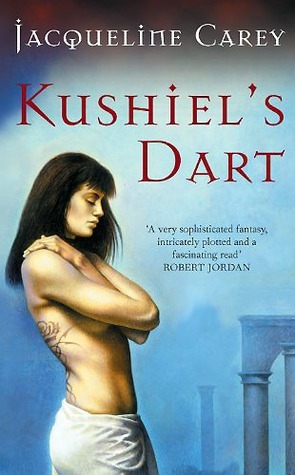
Genres: Fantasy, High Fantasy, Queer Protagonists
Representation: Bisexual MC, queernorm culture, major Romani-coded character
Goodreads
The land of Terre d'Ange is a place of unsurpassing beauty and grace. It is said that angels found the land and saw it was good... and the ensuing race that rose from the seed of angels and men live by one simple rule: Love as thou wilt.
Phèdre nó Delaunay is a young woman who was born with a scarlet mote in her left eye. Sold into indentured servitude as a child, her bond is purchased by Anafiel Delaunay, a nobleman with very a special mission... and the first one to recognize who and what she is: one pricked by Kushiel's Dart, chosen to forever experience pain and pleasure as one.
Phèdre is trained equally in the courtly arts and the talents of the bedchamber, but, above all, the ability to observe, remember, and analyze. Almost as talented a spy as she is courtesan, Phèdre stumbles upon a plot that threatens the very foundations of her homeland. Treachery sets her on her path; love and honor goad her further. And in the doing, it will take her to the edge of despair... and beyond. Hateful friend, loving enemy, beloved assassin; they can all wear the same glittering mask in this world, and Phèdre will get but one chance to save all that she holds dear.
Set in a world of cunning poets, deadly courtiers, heroic traitors, and a truly Machiavellian villainess, this is a novel of grandeur, luxuriance, sacrifice, betrayal, and deeply laid conspiracies. Not since Dune has there been an epic on the scale of Kushiel's Dart-a massive tale about the violent death of an old age, and the birth of a new.
Come on – you knew Kushiel’s Dart would make my list. Even if I didn’t love it more than words can express, the hundreds of ways the religious commandment love as thou wilt ripples through and changes society is enough all on its own to qualify Dart as one of the greatest and most original books out there. More than that, this is a book that leaves its mark on you – I’ve certainly never been the same since I read it. And shouldn’t that be what all Classics strive for?
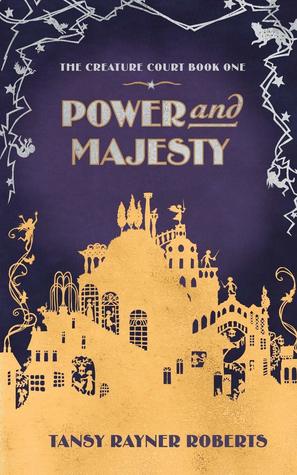


Genres: Fantasy, High Fantasy, Queer Protagonists
Representation: Gay MCs, M/M
Goodreads
Aufleur is a city of honey cakes, decadent ritual... and a secret war fought by an army of beautiful monsters. The Creature Court die and bleed to keep the daylight folk safe, but no one even knows they exist.
Who will be the new Power and Majesty of the Creature Court: a man who was broken and exiled from their world, or the woman who knows nothing of their ways? Neither of them wants to rule, but Ashiol is determined to train Velody to take his place, so that he can finally escape his destiny.
Winner of the 2011 Best Novel Ditmar, and the 2011 Best Fantasy Novel Aurealis Award.
Folx. Folx. There are no books like these books. There is no story like the story they tell. They are defiant, they are feminist, they are queer, they are blood and hope and skysilver. You have never seen magic like the Creature Court’s magic. You have never seen the clash of savagery and kindnesslike Roberts writes it. You have never seen dressmakers become kings and poets shatter death like mirrors, you have never seen mice fight the sky and win, you have never seen flowers and honeycakes save the world and red-red jewels try and break it again. You have never seen a trilogy usurp the conventions and your expectations as thoroughly as these books do.
Hells yes they should be Classics.
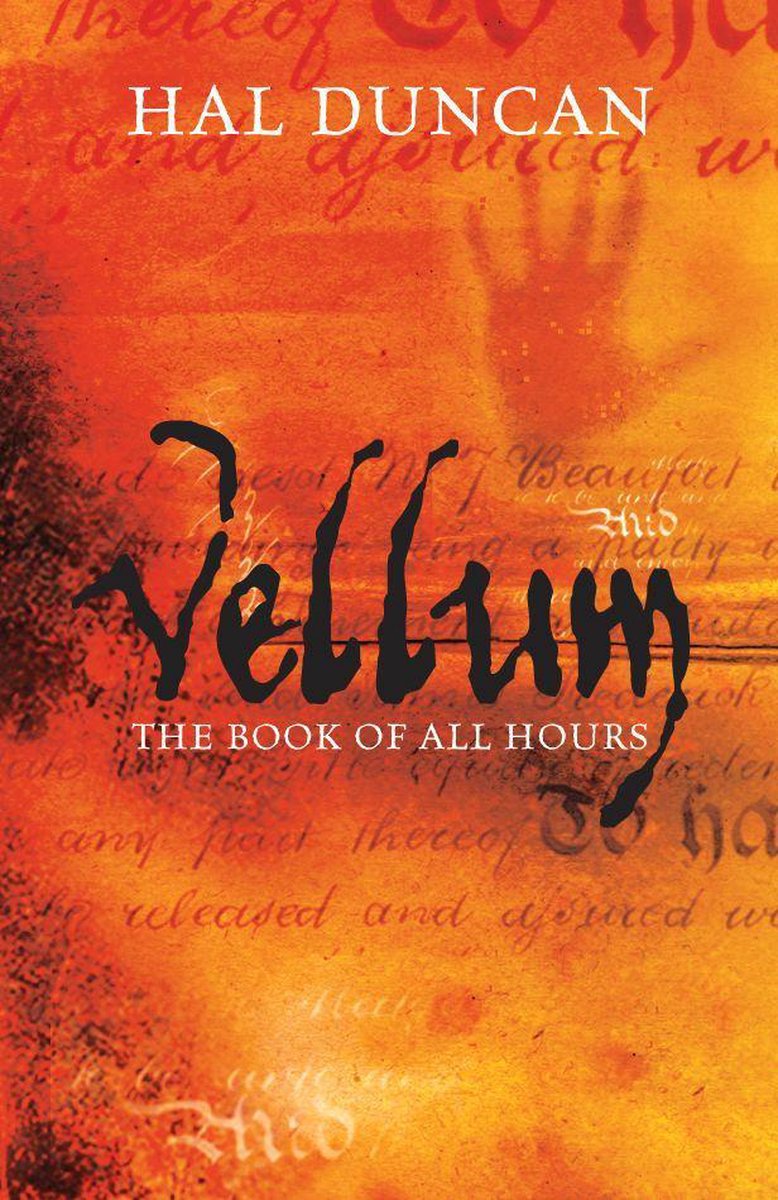

Genres: Queer Protagonists, Science Fantasy
Representation: M/M
Goodreads
An extraordinary, incendiary debut from a rare new talent, Vellum showcases a complex and sophisticated level of writing coupled with a fecund imagination that defies description.
VELLUM: THE BOOK OF ALL HOURS
It's 2017 and angels and demons walk the earth. Once they were human; now they are unkin, transformed by the ancient machine-code language of reality itself. They seek The Book of All Hours, the mythical tome within which the blueprint for all reality is transcribed, which has been lost somewhere in the Vellum - the vast realm of eternity upon which our world is a mere scratch.
The Vellum, where the unkin are gathering for war.
The Vellum, where a fallen angel and a renegade devil are about to settle an age-old feud.
The Vellum, where the past, present, and future will collide with ancient worlds and myths.
And the Vellum will burn. . . .
Not just original and great but also subversive and challenging, the Book of All Hours duet hits the ground running and demands you keep up, mixing realities, parallel universes, mythology, history and genres into a grenade of a masterpiece. Duncan plays with archetypes, tropes, cliches and stereotypes like a pyromaniac plays with matches, and yet the story never gets away from him. Vellum and lnk are flame and gunpowder and scalpels, incisive and detonating and an experience you’ll never forget.
It’s frankly criminal that these aren’t more well-known.
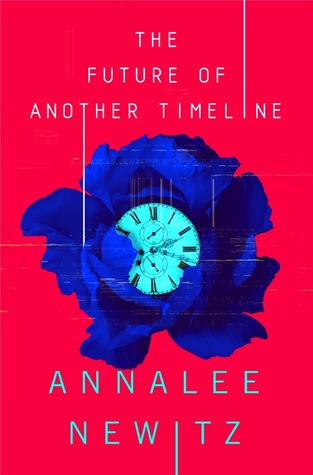
Genres: Sci Fi
Representation: Secondary queer characters
Goodreads
From Annalee Newitz, founding editor of io9, comes a story of time travel, murder, and the lengths we'll go to protect the ones we love.
1992: After a confrontation at a riot grrl concert, seventeen-year-old Beth finds herself in a car with her friend's abusive boyfriend dead in the backseat, agreeing to help her friends hide the body. This murder sets Beth and her friends on a path of escalating violence and vengeance as they realize many other young women in the world need protecting too.
2022: Determined to use time travel to create a safer future, Tess has dedicated her life to visiting key moments in history and fighting for change. But rewriting the timeline isn’t as simple as editing one person or event. And just when Tess believes she's found a way to make an edit that actually sticks, she encounters a group of dangerous travelers bent on stopping her at any cost.
Tess and Beth’s lives intertwine as war breaks out across the timeline--a war that threatens to destroy time travel and leave only a small group of elites with the power to shape the past, present, and future. Against the vast and intricate forces of history and humanity, is it possible for a single person’s actions to echo throughout the timeline?
A world where time-travel is an accepted part of life…and one alt-right group is trying to change the present just as another group of inclusive feminists works to do the same – with each side making completely opposing ‘edits’. The concept is brilliant but it’s the execution that makes it capital-g Great, and a book I want to put in every school library. Yet another book I can’t recommend strongly enough!
This isn’t even close to a full list of all the books that should be Classics, but they are some of the strongest contenders.
Which books would you make Classics if you could?


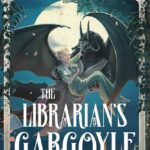
There you are, being amazing again! I’ve got those Juliette Wade books in my LIST, because of you! (And I have a little Zoom date to meet her in person after befriending her on FB because of you, so thank you.) I would LOVE to read those Tansy Rayner Roberts books–with those KATHLEEN JENNINGS COVERS! And, really, everything else on your list. Though I HAVE read Kushiel’s Dart. Not for years though. Time to reread! (After June.)
I’m not glowing so bright they can see me in space or anything, no sir not me! 🥰 EEE. THANK YOU. And, you’re welcome??? I CAN’T BELIEVE YOU TWO BONDED OVER ME. I HAVE FEELS.
Oh you will definitely, 500% LOVE the Creature Court books. As far as I can tell they are EXACTLY your vibe!
…Now I must ask: what happens in June???
Ah! At that point, I will have turned in my nominations for the World Fantasy nominations. I’m one of the judges. Doing a lot of reading for that just now.
Oh that’s fabulous! I do NOT envy you having to choose between all the amazing 2021 books, though. Good luck!